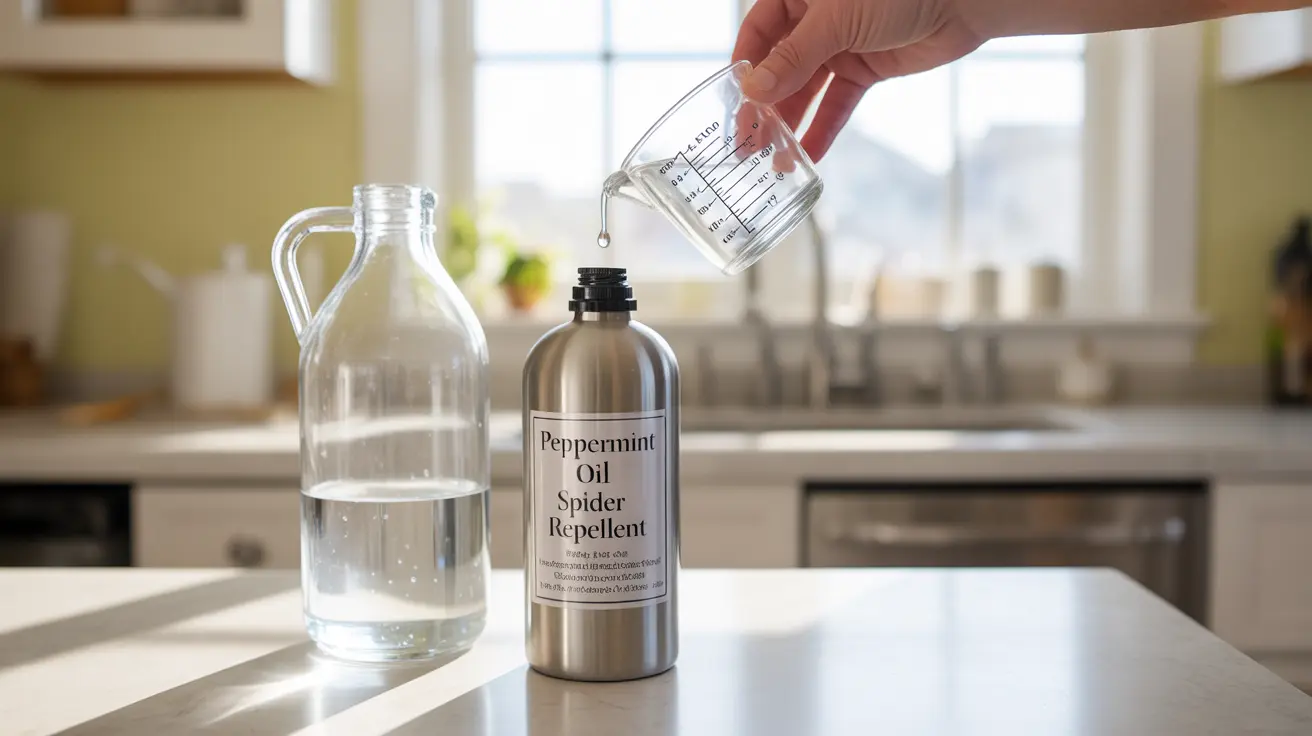Many homeowners seeking natural pest control solutions have turned to peppermint oil as a potential spider deterrent. This essential oil, known for its fresh, potent aroma, has gained popularity as an alternative to chemical pesticides. But how effective is peppermint oil really when it comes to keeping spiders at bay? Let's explore the science behind this natural remedy and learn how to use it safely and effectively.
Understanding How Peppermint Oil Affects Spiders
Peppermint oil contains natural compounds, particularly menthol, that create a strong scent that spiders tend to avoid. While spiders don't smell in the same way humans do, they can detect certain chemical compounds through their legs, and the intense aroma of peppermint oil often proves overwhelming to them.
Creating an Effective Peppermint Oil Spider Repellent
To make a spider-deterrent spray with peppermint oil, follow these basic steps:
- Mix 10-15 drops of pure peppermint essential oil with water in a 16-ounce spray bottle
- Add a few drops of dish soap to help the oil and water mix properly
- Shake well before each use
- Apply to entry points, windowsills, and corners where spiders commonly appear
Best Practices for Application
For optimal effectiveness, focus on treating these key areas:
- Window frames and doorways
- Basement corners and crawl spaces
- Cracks and crevices in walls
- Areas where spider activity has been noticed
- External perimeter of your home
Safety Considerations and Precautions
While peppermint oil is natural, it requires careful handling:
- Always dilute properly before use
- Keep away from eyes and mucous membranes
- Store solutions out of reach of children
- Test on a small surface area first to prevent damage
- Consider pet safety, especially around cats who are sensitive to essential oils
Alternative Spider Prevention Methods
Complement peppermint oil treatment with these additional measures:
- Regular cleaning and decluttering
- Sealing entry points
- Reducing outdoor lighting that attracts insects
- Removing webs promptly
- Maintaining a clean yard free of debris
Frequently Asked Questions
Does peppermint oil really repel spiders and how effective is it compared to other methods?
While peppermint oil can help deter spiders, its effectiveness varies. It works best as part of a comprehensive pest management approach, including proper home maintenance and sealing entry points. Chemical pesticides may provide more immediate results, but peppermint oil offers a safer, natural alternative.
How do I make and use a peppermint oil spray to keep spiders away from my home?
Create a spray by mixing 10-15 drops of pure peppermint essential oil with water in a 16-ounce spray bottle, adding a few drops of dish soap as an emulsifier. Apply the solution to entry points, windowsills, and corners where spiders are commonly found.
Are there any safety concerns or risks when using peppermint oil around pets and children?
Yes, concentrated peppermint oil can be harmful to pets, especially cats, and should be kept away from children. Always dilute properly and avoid direct contact with skin. Ensure treated areas are well-ventilated and keep pets away from freshly treated surfaces.
How often should I apply peppermint oil treatments to effectively repel spiders?
Reapply the peppermint oil solution every 1-2 weeks, or more frequently if you notice the scent fading. During peak spider seasons (spring and fall), you may need to increase application frequency to maintain effectiveness.
Can planting peppermint plants or using cotton balls with peppermint oil prevent spiders indoors?
Both methods can contribute to spider prevention. Peppermint plants work well in gardens and near entry points, while cotton balls soaked in diluted peppermint oil can be placed in strategic indoor locations. However, these methods should be used alongside other prevention techniques for best results.




